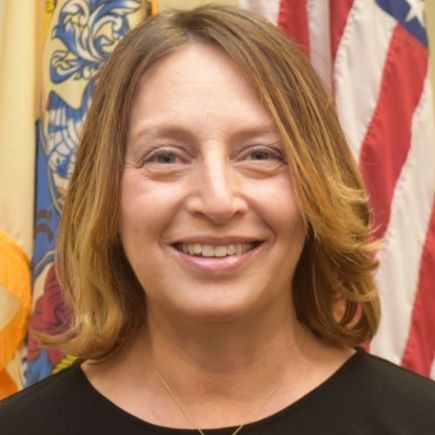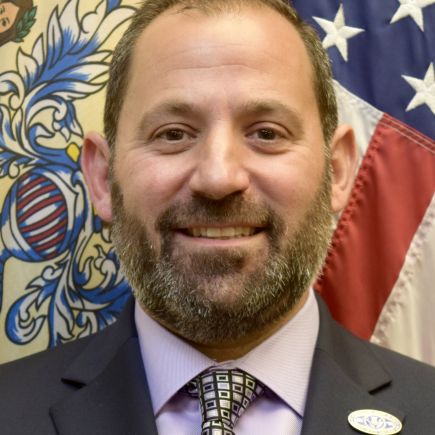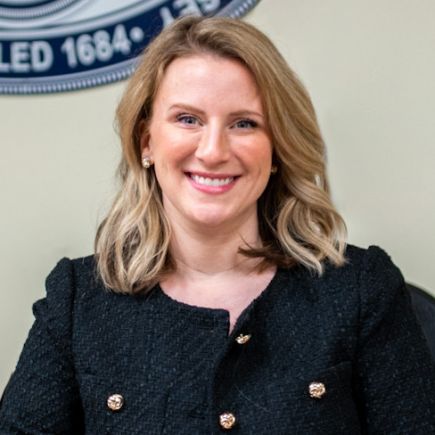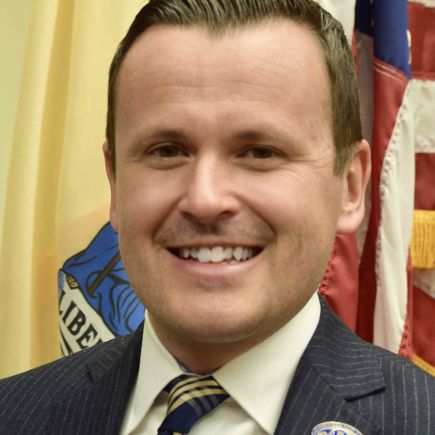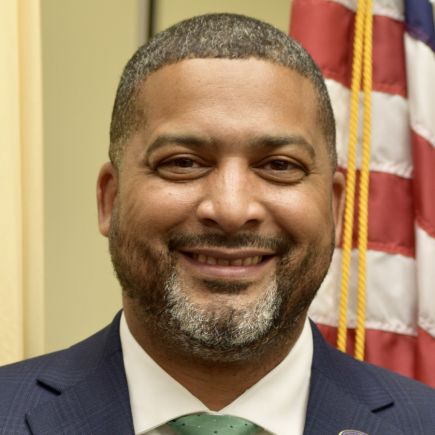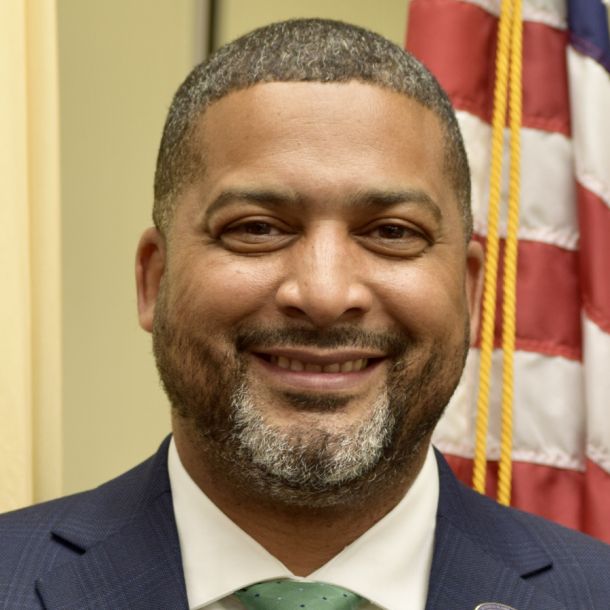

Scotch Plains Police Sgt. Michael Baltazar shows a police patch specially designed for National Autism Acceptance Month during this week's Township Council meeting.
Message from Councilman Roc White | April 18, 2024
As we work toward creating an even more compassionate and understanding community, I am pleased that there is substantial news to celebrate during National Autism Acceptance Month, marked each April.
Later this year, the New Jersey Motor Vehicle Commission will begin allowing motorists with autism to indicate on their driver’s licenses or identification cards if they have been diagnosed with Autism Spectrum Disorder or a communication disorder.
The state legislation (S761/A2369), signed last year, will soon allow a motorist or a caregiver the opportunity to submit documentation to indicate the diagnosis under a column designated for restrictions.
This law helps ensure all motorists are treated with dignity and respect, while providing police with important information they need during a traffic stop. Sometimes individuals with autism might not make appropriate eye contact, they may speak too quickly or too slowly, and they might engage in unusual behavior that can create misperceptions.
I am pleased the bill also has an educational component to train police officers and develop communication guidance to be developed by the State Police, state Department of Human Services and an autism advocacy organization. Police will learn about the symptoms, the behaviors and gain a better understanding of what to expect when they meet someone with autism.
Autism New Jersey has been one of many strong voices for this legislation since its introduction.
“Interactions with law enforcement require clear communication, and first impressions are critical to everyone’s safety,” said Autism New Jersey Executive Director, Suzanne Buchanan. “When law enforcement interacts with an individual, it may not be readily apparent that the individual has autism, and barriers to communication might be misunderstood or misperceived, potentially creating an unsafe situation for both the individual and the law enforcement officer.”
Buchanan shared a story involving the traffic stop of a young man with autism who, after giving his license and other credentials to a police officer, said he couldn’t comply with the officer’s directions to pull into a nearby parking lot because his literal interpretation of the situation was the officer had his license and he couldn’t drive without it.
“He thought the correct answer was to say, ‘No I can’t drive because I don’t have my license on me’,” Buchanan said. “It took few minutes of conversation. It resolved successfully, but it gives you pause.”
This legislation will provide immediate information to law enforcement so that they can adapt their approach accordingly. It’s critical; our police officers are continually asked to quickly assess if someone’s behavior is unusual or suspicious.
Blue Envelope
I am also pleased to note that Scotch Plains has been rolling out the “Blue Envelope” program, which we announced in December.
It is part of a quickly-growing nationwide program to help residents with Autism Spectrum Disorder or other sensory conditions interact with police during emergencies, traffic stops or other potentially stressful situations.
Here’s how the program works:
It allows an individual to readily display the Blue Envelope logo or present a Blue Envelope upon contact with law enforcement or other community service personnel. Scotch Plains police immediately recognize the individual has special needs, giving them better understanding of the situation and any potential impairments the resident may have.
Each of these Blue Envelope-branded products contain the individual's identification, contact information or pertinent vehicle operating documents, such as the vehicle registration and proof of insurance. By having all the information in one orderly place, it can ease the transaction with the officer.
This is a superb program, designed to promote inclusivity and to build even stronger bridges between the Scotch Plains police and those who might require additional accommodations or awareness during a law enforcement interaction.
As an elected official, I believe it is my role to help, wherever possible, to ensure safe and fulfilling lives for all residents, such as those with autism. Together, we need to work with autism advocacy groups, as well as the Scotch Plains Police Department, to create more guidance, training, and networking opportunities to make our community even more autism friendly.

